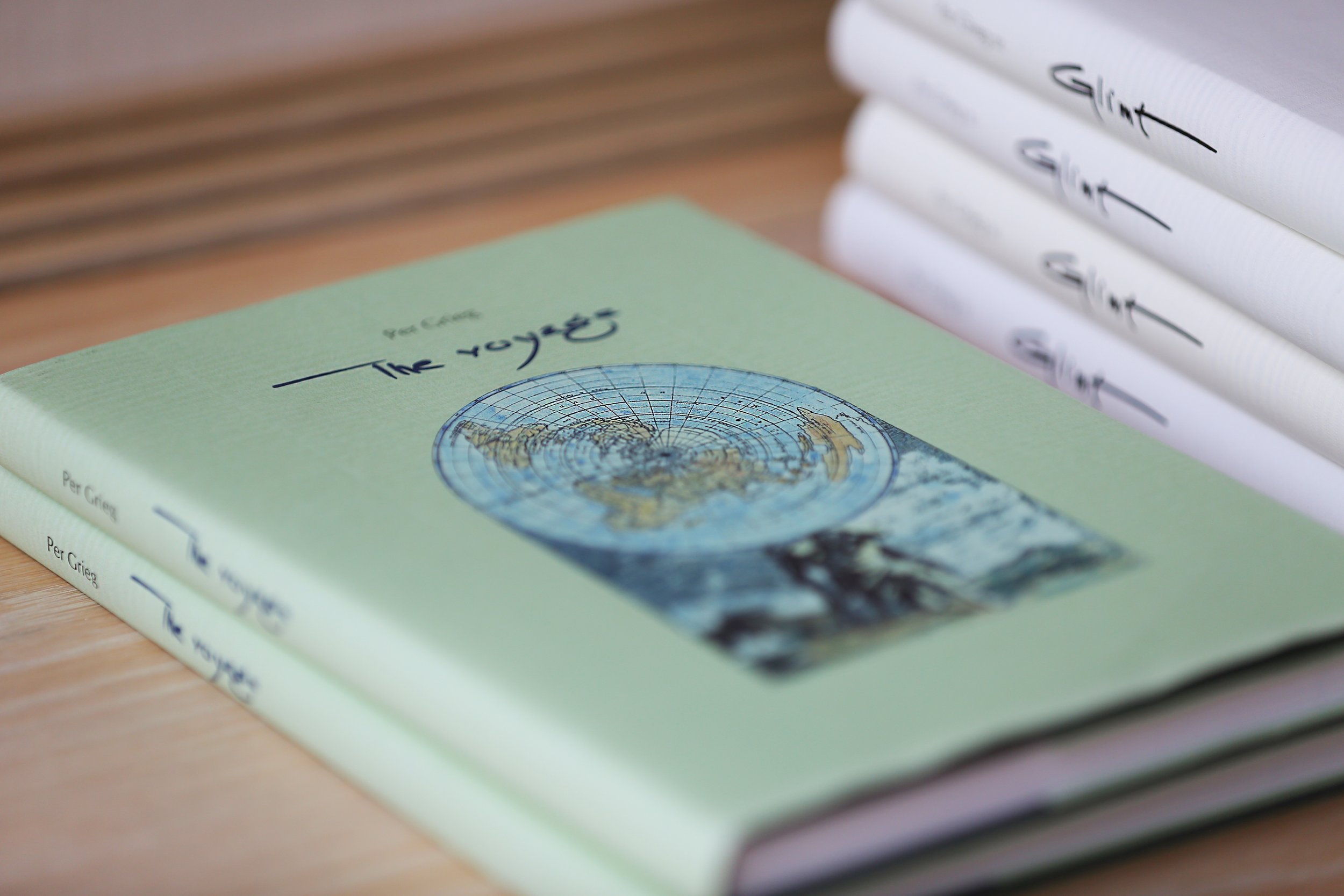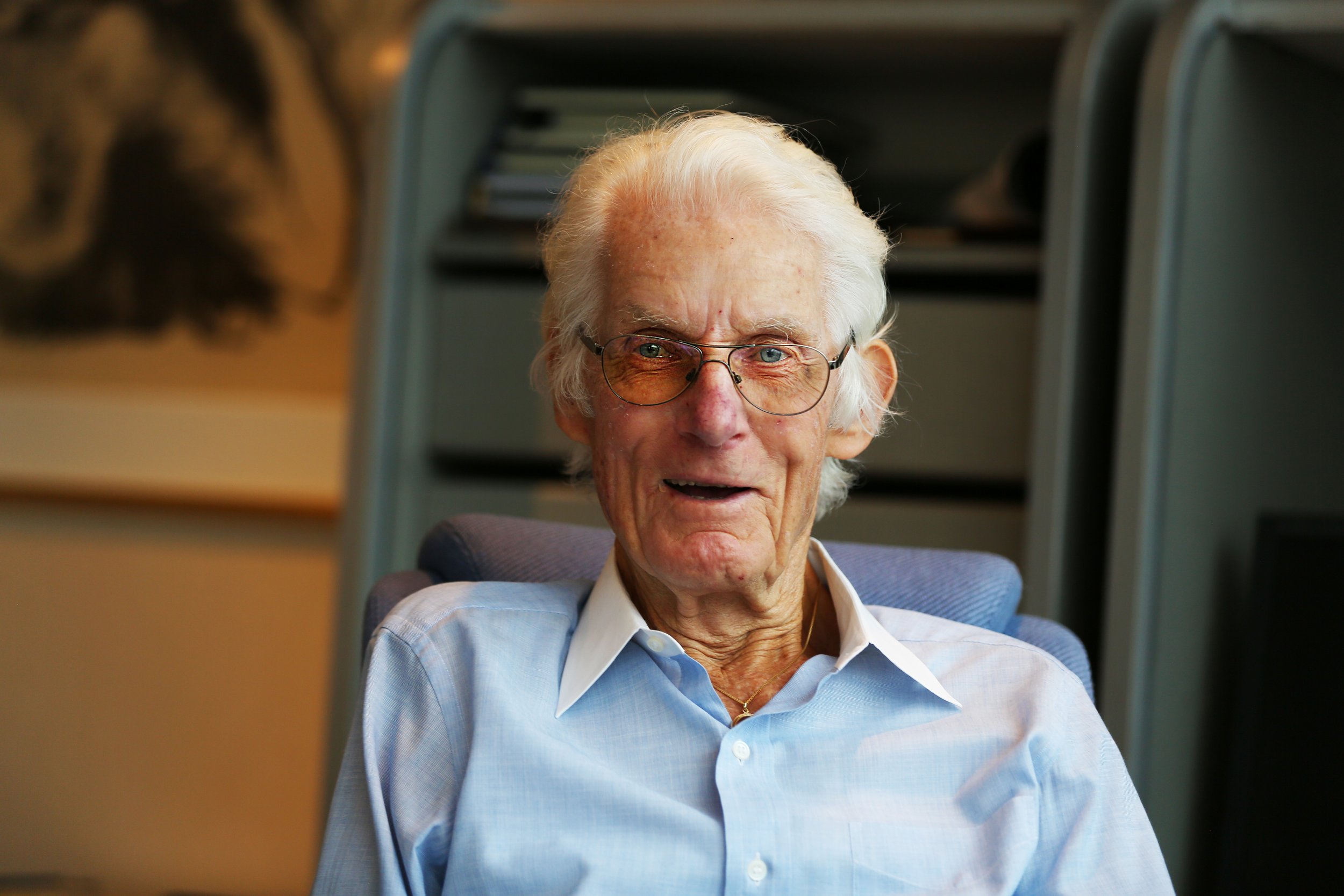

Per Grieg Senior has never been in doubt about the secret of success in achieving the business adventure he has been part of creating.
– Hi boss! I’ve put a bag of home-made fish cakes in the fridge for you.
Arthur Fjetland puts his head around the door of the board room on the sixth floor of the Grieg Gaarden office building in C. Sundts gate, Bergen. He is the Grieg Group’s regular chef at events and special occasions.
Per Grieg Sr. smiles and nods.
– Many thanks, Arthur. Is the bag heavy? I’m only asking because I will be cycling home today.
– It’s probably a couple of kilos.
– That should be fine.
There has never been a great distance between employees and management in the Grieg Group.
Per Sr. has lived a long life and turned 90 31. January. His mind is sharp, and he keeps fit by cycling.
– I am now the oldest Grieg in the history of our family. I think that is quite an achievement.
– What is the secret?
– Luck, is his immediate reply, before he smiles and adds:
– And a generally healthy lifestyle. The advice and motto I always use is: Everything in moderation. I do not like excesses of any kind. All excesses are bad.
Per Sr. shows us around the office. The big glass windows provide a panorama view over the Vågen bay. There is no better view for a naval architect.
– I designed the office myself. I had to have it my way as so much of my time is spent here.
Per Sr. has many architects in his immediate family. Best known is his father, Per Geelmuyden Grieg (1897–1962), who designed the iconic Sundt building on Torgallmenningen.
– Did you ever consider becoming an architect yourself?
– I did, but I was not allowed to by my mother. She was convinced that we had enough architects in the family, he says with a smile.
He attended at the technical university in Trondheim, then known as NTU, where he studied engineering and qualified as a mechanical engineer and naval architect in 1956. After completing his studies in Trondheim, he worked for a few years as a shipbuilder at Det Bergenske Dampskipsselskap (Bergen Steamship Company) and Eriksbergsvarvet shipbuilders in Gothenburg.
In 1960 he was asked by his uncle, Halfdan Grieg, popularly known as Halla, whether he wanted to work as a shipbroker in the family business, Joachim Grieg & Co.
– When I was offered the job, I took a week to think about it. I actually had other plans based on my technical training, but I ended up accepting the offer, he says remembering his mother’s warning:
– I remember that she was worried about me doing it for the money.
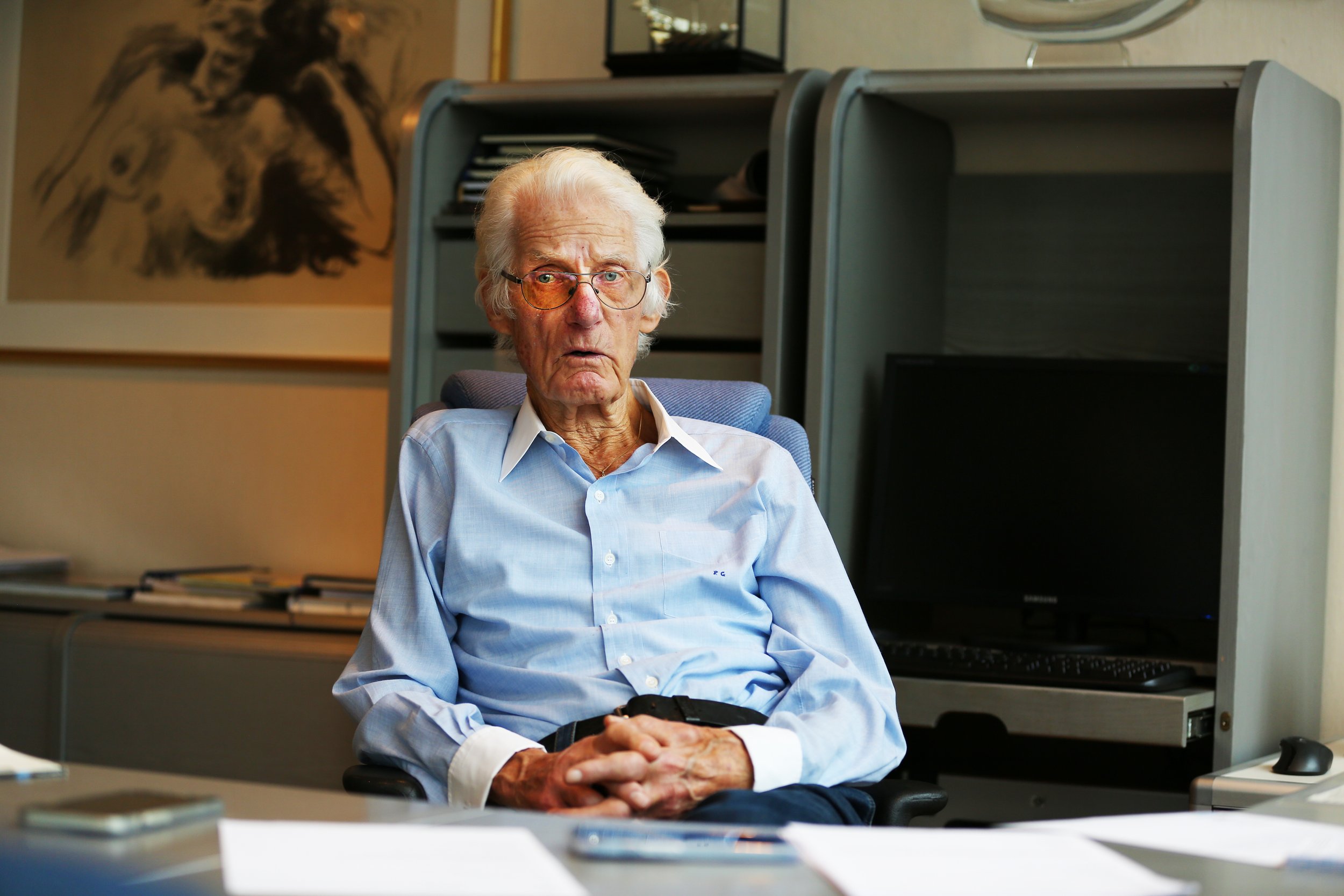
He had to think seriously about what it was all about when he took over the helm of the family business in 1972. That was when he set the course towards what is now the Grieg Group with global businesses in shipping, seafood, logistics and investments.
– There were two important factors for me. One was to hand over the company to the next generation in a better condition than when I took over. But it was also about creating something lasting that other people can enjoy, whether through meaningful work, art and culture, or by giving back to society, he says, emphasising that it is not profit alone that defines success:
– It is about people. And that is an obligation.
– In what way?
– We exist for the employees, not the other way around, he says and continues:
– Most of us spend a considerable amount of our time at work. We need to make work a good place to be so that our employees can live a happy life. If we manage that, we have achieved our goal. Luckily, the family members in the next generation have embraced this way of thinking.
Per Sr. has written several books. In his autobiography «Stafetten» (The Relay), he looks back to 1972: «What are we really doing? Where are we heading? And where do we want to go? These are questions that I became conscious of as a natural consequence of becoming a leader.»
– The responsibility lies at the top, but it is not possible to achieve anything without skilled employees, and employees should be treated with respect. My children and I believe in using praise as a motivating factor, he says.
– Has that always been the case.
– No. When I joined the company in 1960, most of the businesses were led in an extremely authoritarian manner. The owners had all the authority and power, and also made all the decisions. The regular employees did not know to what extent they lost or earned money, he says and ascertains:
– I think I introduced the concept of «strategy» as a basis for our activities before the word became a natural part of the business world.
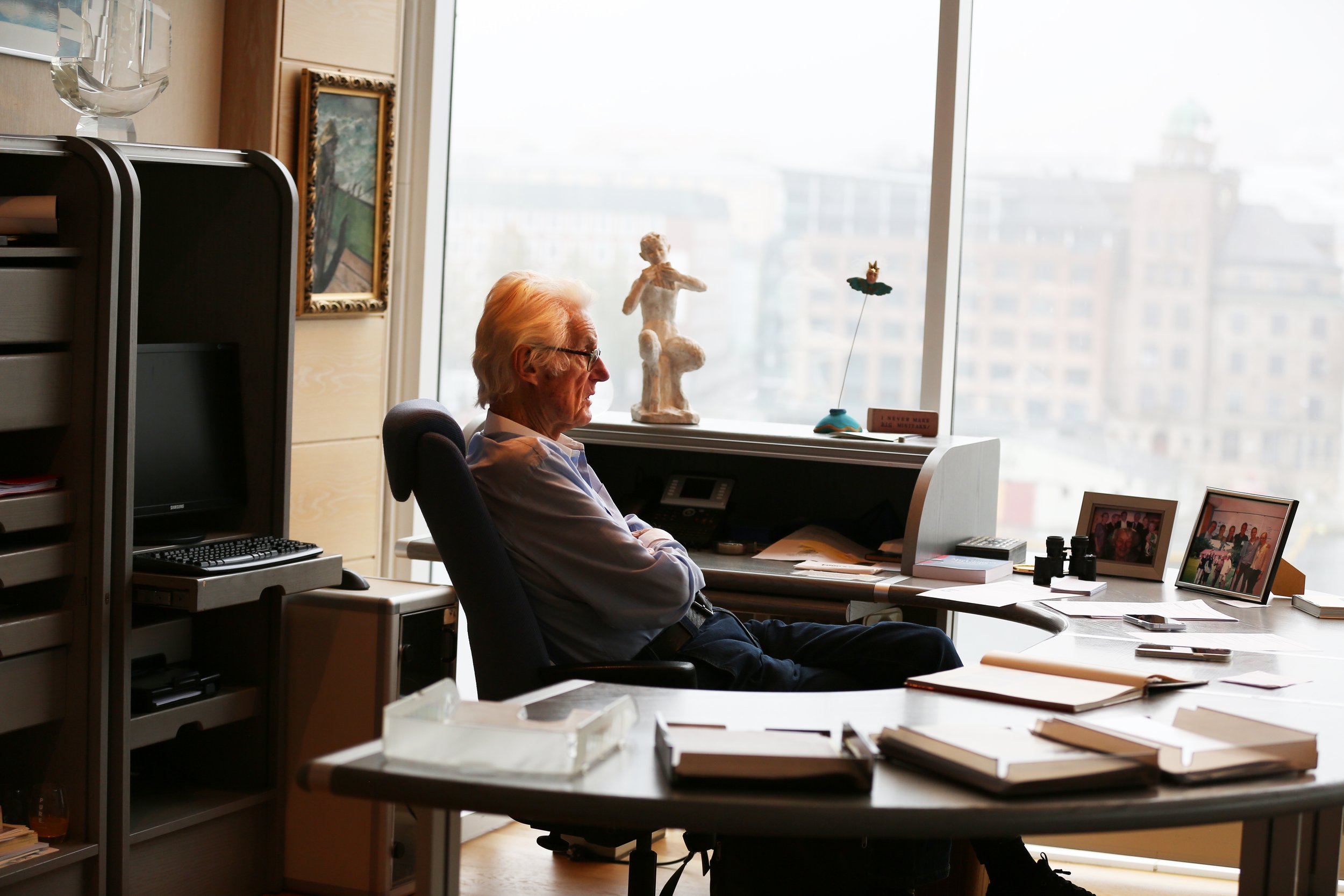
Per Sr. quickly realised that employees with an understanding of their role in the company and how their job should be carried out became employees who produced better and more.
– I remember that one of the first things I did was to say to the brokers: «Before you take the phone, decide what you want to achieve.»
Gradually, he had strategy documents prepared and decided which areas of business to prioritise.
– We started a systematic analysis. What was the most sensible way of dividing our activities into different areas of business? And how should we organise things so that our employees understood what they themselves cost and produced? It was a difficult process, but a very necessary one.
Today’s Grieg Group is based on Per Sr.’s concept of maintaining a variety of business activities and responsibilities.
– Of course we have people who come and go, but I am proud to say that we are an attractive workplace. We have employees who have been with us for many years, he says and continues:
– We usually say that the employees are part of our extended family.
– Do you never get tired of talking about the employees?
– No, and it should be obvious why not. What can we as leaders and owners do on our own? We can have the occasional good idea. We might even feel strongly about starting up an activity, but there is not much point in starting something without skilled employees who have the ability to think independently.
– We have been blessed, at least I have, not just by having good employees, but extremely interesting and motivated, talented people. Many of them have also become my close friends.
But success does not come by itself, and success and adversity often go hand in hand. This is also true Per Sr. When disaster struck, everything happened at once.
In partnership with the banker Per Waaler, he built up the successful shipping company Star Shipping in the 1960s. Technological innovations and specially designed cargo hatches made the ships extremely efficient and resulted in exceptional growth for the partners.
– Per Waaler and I were like twins. We travelled together for ten years to build up the shipping company, he recalls pointing at a black-and-white photograph of a man in his prime. This unique collaboration came to a much too abrupt end.
– On one of the few trips abroad where I did not accompany him, he was killed in a plane crash. He was on his way to Japan, and the accident happened during a stopover in Moscow. It was a huge loss and complete shock to everyone. We were the closest you could get to being twins without being related, he says.
Per Sr. soon learned that misfortunes seldom come alone.
– Three of the walls around my business life came crashing down overnight in the first half of the 1970s. The same year that the plane crash happened, Uncle Halla died. Times were tough, but we were lucky to have some extremely strong and reliable employees, in particular Bjørn Østervold, who also became my good friend. He took over as president of the shipping company.
– Did you learn anything from what happened?
– That Per should lose his life on a trip to Japan? No, you cannot learn anything from a catastrophe like that, but I learned from the new tasks. I became a shipowner overnight. We had to work very hard to keep control of Star Shipping, and then the shipping crisis of 1974 hit us. That really tested us.
The crisis was to last for 13 years but Per Sr. managed to save the Grieg Group from bankruptcy – just.
– I managed to pull myself through the crisis with my fingers on the edge of the table. We avoided receivership and met our obligations. Luckily, this period was followed by the golden 90s, he said and explained what saved the Grieg Group:
– We had several legs to stand on. We had insurance, Grieg Transport, and a shipbroking company, and we were constantly on the lookout for new opportunities. It is vital not to be passive in a crisis, otherwise things can go downhill fast.
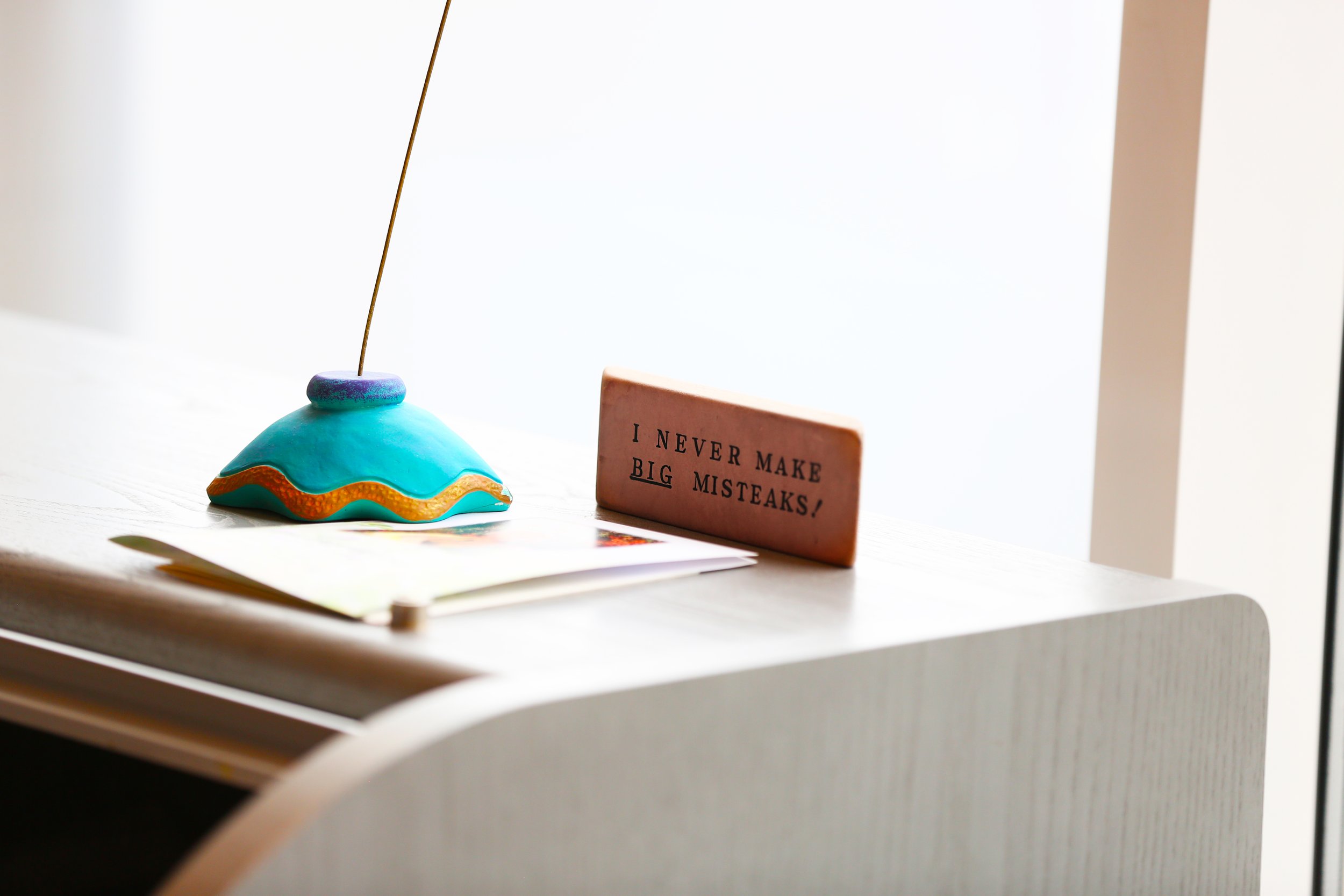
The creative streak in the Grieg family has always been there: Architects, entrepreneurs, and talented businesspeople.
And everyone who works in the Grieg Group, whether in aquaculture, shipping, or investments, contributes to creating values that strengthen the local community both in Norway and abroad. One thing is the billion-dollar amounts that benefit society through tax revenues, ripple effects for local businesses and jobs. In addition to this, the family’s foundation, Grieg Foundation, has donated more than NOK 700 million to good local and international causes.
– Support for children and teenagers has always been important for the Foundation, explains Per Sr.
It started with SOS Children’s Villages where he served as a board member and helped to lead activities both in Norway and abroad. One of the pillars of the Grieg Foundation has been to provide support for education, especially for girls in poor parts of the world.
The Foundation also contributes to a large number of projects in Norway. The projects that receive funding must have the potential to create change and strengthen the local communities of which they are a part. The Foundation has also helped to fund research and medical equipment, including at Haukeland Hospital.
– We do not want to be a foundation that just waits for applications. We want to take the initiative to find good projects we can support.
Giving back to society has given Per Sr. an extra dimension to life.
– I was already concerned about contributing to a greater cause when I started as a shipbroker. I did not want traces of me to be in the bank books alone, and I completely agree with what Trond Mohn has said: Those who have not given do not know what they are missing out on.
– When you give to others, it is for a greater cause. In many ways, you are giving back to yourself. It feels good, he adds.
When the Grieg Hall (Grieghallen) construction project ran out of money, Per Sr. stepped in and opened his wallet for his hometown once again. Grieg Hall opened its doors in 1978.
– When I became a board member of Bergen Philharmonic Orchestra (Harmonien), the condition was that I was allowed to join the board of the Grieg Hall too. When my business partner Per Waaler died, it became an even bigger obligation for me to finish the project, and we did.
Both Per Sr. and his children have contributed generously to art and culture in Bergen over the years. As the main sponsors of Bergen Philharmonic Orchestra, they fund record releases and tours. Per Sr. also loves opera and everything he calls beautiful art forms.
– I appreciate painting, sculpture, classical music and opera. I do not understand black metal, but that is probably my fault, he says and chuckles.
– What about modern art?
– There are a lot of good things there too. My interest is more classical, but my daughter Elisabeth has made sure that there is a focus on newer art forms, and especially female artists.
The Grieg Collection, which includes many works from the ‘golden age’ in Norwegian painting, is exhibited at the Oseana Art and Cultural Centre in Os, Bjørnafjorden, outside Bergen. The centre, which cost NOK 200 million to build, became a reality after a generous donation from Per Sr.
– It is almost as if we have felt an obligation to give back to our city and society in general, regardless of what political authorities may think, he says, pointing to the fact that it is mainly thanks to private donors that art museums and other cultural institutions have something to show to visitors.
– There is hardly a cultural institution, or a museum in Bergen, that has not been started on a private initiative, but it is good that the municipality has taken over the operation of various institutions over time. I am not against this kind of partnership between the private and public sectors, but without private donations, there would not have been much art and culture for the audience.
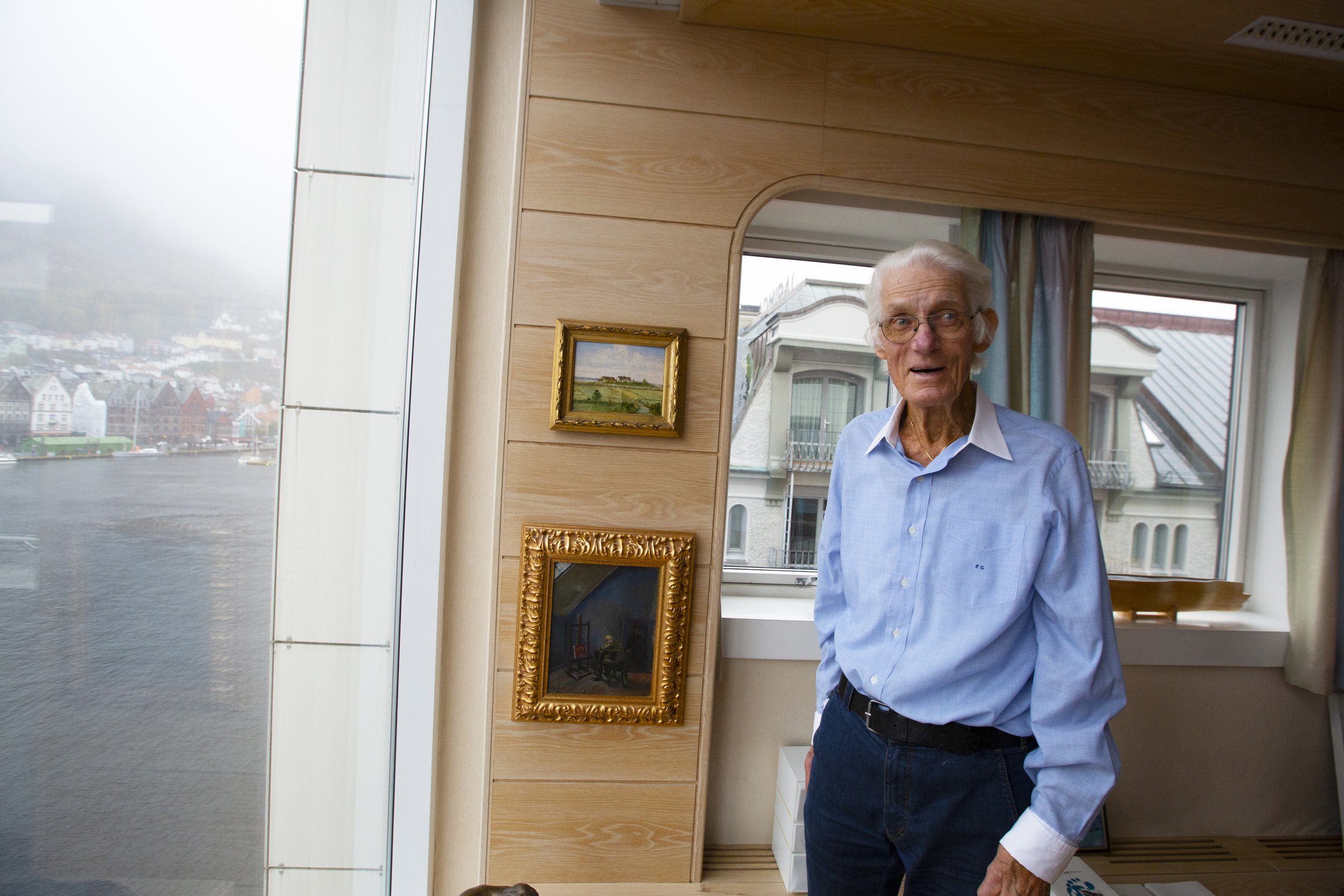
What is it that has given the Grieg family ever more wind in their sails after sea captain Joachim Grieg came ashore for good and received a shipbroker’s license in Bergen on 1 January 1884?
– Getting things to “move onwards” is a quality we are born with, I think. It probably comes from both families, from both my mother’s and my father’s side.
– You once described your inner drive as an engine in your stomach?
– The expression originally stems from my uncle. For him it was not only positive. He died early and was probably an extremely stressed person.
For Per Sr. the expression is about making things happen.
– It feels as if many of us in the family have been born with an engine in our stomach, and it can be described as a form of “inner drive”, or unease, if nothing is happening that gives a sense of satisfaction, he says and comments:
– It also means constantly identifying new business opportunities.
The ability to identify new opportunities began with Joachim Grieg. The shipbroking company he founded in 1884 quickly became one of the leading companies in Northern Europe. He was involved in the transition from sailing ships to steamships, which made shipping faster and more efficient. Joachim Grieg also seized another opportunity when the telegraph came. He adopted this new technical marvel as soon as it became available.
– This gave him a major competitive advantage which he used to establish direct contact with the markets abroad, says Per Sr., who has inherited this quality:
– I was also never afraid to exploit the potential of new technology that could streamline operations. When the computer age really took hold, I was eager for employees to use whatever gave us a technological edge over the competition.
Per Sr.’s four children are all active in the day-to-day management of the businesses belonging to the parent company, Grieg Maturitas. Camilla, Per Jr., Elna-Kathrine and Elisabeth Grieg were all part of the generation change er that took place in 1999.
– I was advised against involving all the children, but luckily, I listened to my wife.
Per Sr.’s wife, Elna, passed away recently at the age of 88. Although she did not have an active role in the business, she has left deep traces in the Grieg Group.
– Do not even dream about becoming enemies, Per Sr. says, before continuing:
– That is what she said to our four children after the generation change. The reason why everything is still functioning well today and the reason why we have managed to achieve this, is largely due to my wife’s attitudes and how she instilled her own values in our children.
– Are you proud of what you have achieved?
– Yes, I am. It is not just that we have created a global business success, but even more important are the ripple effects our activities have created for Bergen and West Norway as well as for thousands of families at home and abroad, says Per Sr.
– All our activities are currently thriving, and for me as a 90-year-old to sit here and watch the business grow at the same time as I have had my 12th great-grandchild, and to know that everyone is fit and healthy: No, it is almost impossible to have that much luck.
